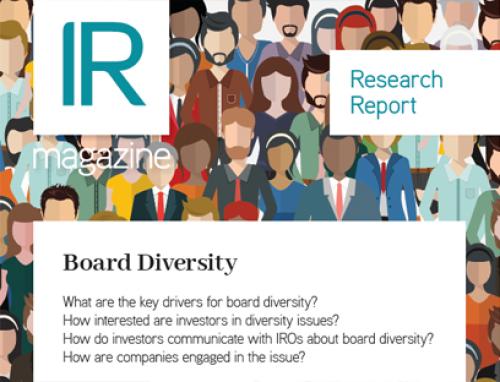The founder of Smead Capital says fund managers need only 7th grade math
Bill Smead is almost a personal history of fund management, with great financial names of the past and present festooning his resumé. He began with Drexel Burnham Lambert, worked at Oppenheimer & Co, spent 11 years with Smith Barney and then worked with Wachovia before setting up Smead Capital in 2008.
 ‘Blackjack is a better investment than commodities’ – Bill Smead |
He has a BA in economics but warns: ‘I don’t have a lot of alphabets behind me – no MBA, no chartered financial analyst designation. Just five kids and three grandkids and a lot of scars.’ He blames this situation on Drexel Burnham’s California office manager, who responded to his query about the need for business school in the following way: ‘An MBA is you versus them, whereas the real issue is you versus yourself.’
‘Personally, I believe you should have learned all the math you need to be a successful stock picker by the end of 7th grade,’ says Smead. ‘If your algebra and percentages are OK, you have all you need.’
Perhaps the lack of investment theory might explain Smead’s contrarian disdain for the market foibles of his peers. For example, during the tech bubble, he recalls: ‘My gut was screaming at me in 1998. I pulled out and was tortured by [prices] going up and up after I got out. I was glad when it broke, although it damaged a lot of people when it did.’
Starting a new money management firm in 2008 was a serious swim against the tide, too. ‘You want to start a little before the bar,’ laughs Smead. ‘So we suffered a lot in 2008, but we’ve torn the cover off the ball since then – fully invested at the bottom.’
His stock picking is based on his own observation of reality rather than the dubious wisdom of pundits. He dismisses the situation of ‘the whole China, emerging markets, commodities, multi-asset trade around a hypothetical growing middle class there. It’s a misnomer from an investment point of view. China’s attempts to postpone business cycles has led to huge misallocation of capital by US investors.’
Dismissive society
He reserves special scorn for managers dabbling in commodities. ‘Billions and billions of dollars have been invested in commodities to smooth returns through diversification without taking into account whether they were undervalued enough,’ he points out. ‘We fundamentally don’t believe commodities are an asset class. The largest institutional investors own more in commodities and gold than in S&P 500 companies; one produces wealth, and gold, for example, produces nothing. In commodities it’s a bet on a price change and we believe commodities were never so overpriced relative to everything else as they were in July 2011. Blackjack is a better investment; they are both just betting on possibilities.’
|
Fund snapshot |
Smead’s approach is long term, with an average turnover of 14 percent a year. ‘Of course that’s not what companies like – they don’t want shareholders planning on staying for seven years,’ he says. ‘The usual funds average about 12 months.’
He explains, while dismissing, the prevailing churning ethos of his rivals. ‘The stock market went nowhere from 2000 to 2012: in an environment where no one was going anywhere, people gravitated to managers who successfully traded in and out,’ he says. ‘Most people missed the bull market of the last four years as they practiced the timing they’d needed from 2000 to 2007. But of course no one can consistently time the market; that’s what you learn in your first few years in the business.’
He also believes people are attracted to a passive style: ‘Active managers have become what we call way-too active managers, so [investors] want people who keep turnover and costs at a minimum, and ride winners to a fault, which is what you get with an index.’ By contrast, Smead says, with an active but not way-too-active manager, valuation should matter dearly. ‘They would buy only undervalued stocks, avoid popular areas, ride their winners and keep turnover down to a minimum,’ he explains.
Doing it his way
For research, rather than talking to the company, Smead’s firm prefers to look at what the top five or six officers have been doing with the stock in their own accounts. ‘Are they buying it?’ he asks. ‘Are they exercising options and keeping shares or are they just pulling out cash? This stuff is not hard to find out; it’s just that a lot of managers ignore our criteria (see Smead’s criteria, below) as there’s something interesting and exciting going on. Our object isn’t to get excited, but to create wealth over a long period of time.’
He explains some of his own top holdings using those very criteria. ‘Look at eBay: the founder still holds about 9 percent,’ he points out. ‘And it provides the toll bridge for retail online commerce with PayPal. It has high margins, and [you can] name everything that’s difficult about running a retail establishment and then subtract it – and you get eBay. No stores, no advertising, no staff – no shoplifting, even!’
Smead relies on IROs in particular for ‘certain smaller, out-of-favor companies mostly, where it is more difficult to get information – the type of firms where you almost have to call to get someone to talk positively about the business. A CEO is going to tell you all the great things that are going to happen based on the vision for the business; I would rather check what he or she is doing with his or her own stock. If we call the investor relations department, we are looking for answers to specific questions.’
Smead’s criteriaSmead Capital founder Bill Smead’s portfolio is made up of stocks chosen according to eight criteria, reflecting his strong beliefs:1. The company must meet what we see as a real economic need – such as Disney, which is the world’s most successful babysitter. 2. It has to generate high levels of free cash flow. What kind of company is it if you can’t rake off cash every year without interrupting the business? 3. It needs wide moats. We want businesses with strongly defensible positions in the marketplace. 4. It should have a long history of profitability as measured by return on investment, and so on. 5. It should be available at a low price in relation to intrinsic value. 6. It needs strong balance sheets. 7. We want to see shareholder-friendliness. 8. We like strong insider ownership, preferably with recent purchases. |










